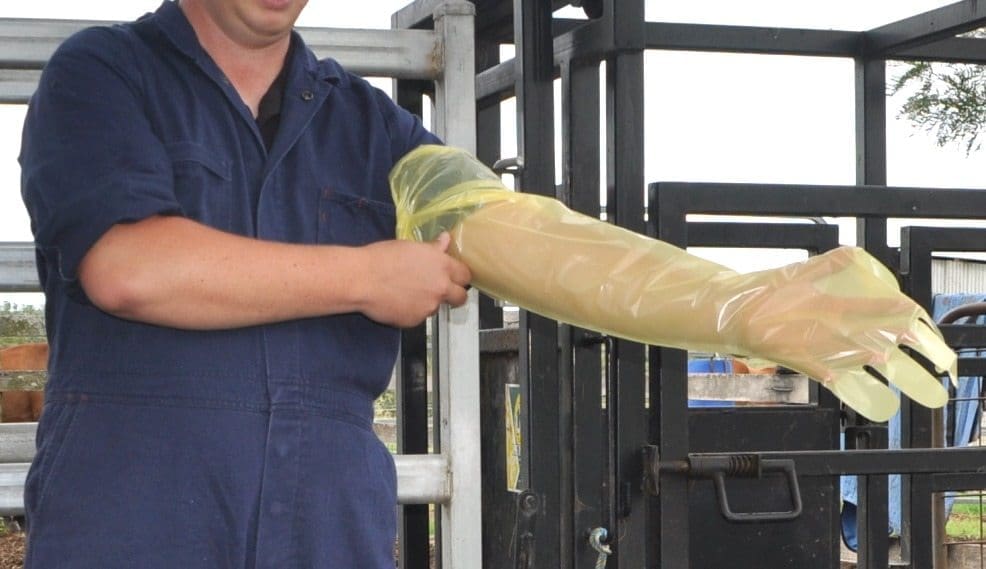PROVIDING tax or university study debt relief through a bonding scheme for veterinarians working in rural and regional areas is just one of the recommendations included in a new report on the shortage of vets on Australia.
A report released today by Veterinary Schools of Australia and New Zealand titled ‘Rethinking Veterinary Education’ is a collaboration between the Deans of veterinary science schools and faculties across Australasia.
 The last significant report into veterinary education was compiled more than 20 years ago.
The last significant report into veterinary education was compiled more than 20 years ago.
Beef industry concern about the lack of practising vets in the bush is captured in reader comments on this earlier story: Country vet shortage growing concern for farmers
The report released today recognises the crisis facing the veterinary profession, particularly in terms of funding models for veterinary education; sustainability in agricultural and domestic practice; and retention in both rural/regional and rural areas.
It also highlights the vital role that veterinary experts will play in managing the impacts of climate change, improving biosecurity and disease prevention.
Professor Jacqueline Norris, Head of School for the Sydney School of Veterinary Science, said veterinary education had the highest gap of any discipline between what it costs universities to deliver their programs and what they receive from the Commonwealth and capped domestic student fees to meet those costs.
“At the University of Sydney, on average over the past four years, the annual funding gap per full-time Commonwealth-supported veterinary student has been 36 percent, or almost $20,000 each,” she said.
“We know that many other universities face similar funding shortfalls in sustaining high-quality veterinary science programs in the national interest.”
Prof Norris said the funding shortfall facing universities with vet science programs – and the financial pressures on vet practitioners after graduation – meant that without structural change, there will be increasing sustainability pressures for the veterinary industry, impacting agricultural industries and domestic pets.
The eight universities across Australia and New Zealand that supply graduates for the veterinary profession have a special role to play in suggesting solutions and addressing these matters, she said.
Professor Norris said the report was a good signal that the higher education institutions are working together to push for the type of change needed: in accreditation, admissions criteria, structural adjustment and load sharing; and in funding changes.
The report highlights the economic and mental-health pressures on vet practitioners after graduation and suggests measures to support the profession to become a more sustainable career option.
It also notes the evidence that suggests risk of death by suicide is increased in the veterinary profession compared to the general population.
Recommendations include new and broader pathways for entry to the profession; paid apprenticeships while studying; mandatory mentoring; and the exploration of debt relief models for vets working in remote and rural Australia.
Critically, the report highlights the diverse role that vets play in the Australian economy, in our communities, and in our public health sector as ‘disease spotters’ at the frontline of Australia’s biosecurity, in food production and for animal welfare.
Prof Norris said vets played a vital role in our communities – but this was beyond the stereotype of TV series characters like James Herriot from All Creatures Great and Small.
“We are focused on producing highly skilled graduates that can deal with the pressures of veterinary life and be major contributors to Australia’s communities, economy and public health wellbeing.”
She said that with accelerating climate change, the role of vets will become more important, not just as practitioners dealing with disease pressures on livestock and domestic pets, but as leaders in climate change research, as well.
Beyond treating animals that were unwell, vet expertise went much further, such as disease prevention and early identification of disease.
“This is as important for human and animal health,” Prof Norris said.
“Our researchers are working with government and public health officials in Australia and South East Asia to train animal handlers on the ground to spot the emergence of zoonotic diseases such as swine or avian influenza, coronaviruses, rabies, foot and mouth disease, or African swine fever.”
University of Sydney’s deputy vice-chancellor (Education) Professor Joanne Wright said as her university was committed to supporting positive change in the education of veterinary science students.
“As one of just seven universities in Australia that maintains a School of Veterinary Science, we welcome this report and reaffirm our commitment to continuing our 113-year tradition of educating the next generation of veterinary practitioners. However, this must be done positively in collaboration with the Commonwealth to help us address the structural financial burdens on providers of veterinary education.”
“Unfortunately, changes to higher education funding introduced by the former government discourage both universities and the Commonwealth from prioritising new student places for vet science courses – even though the profession faces growing workforce shortages and was added to the skilled migration priority list in 2021.”
“We are hopeful that the Accord Panel will have something to say on this issue when its interim report is released.”
Some of the recommendations contained in the report:
- Debt relief for vets working in rural and regional Australia through a bonding scheme
- Improved professional support for veterinary practices to attract and retain graduates in the profession
- Increasing Commonwealth support to address the gap between costs and funding, the biggest in the higher education sector
- Extending mentoring schemes
- Broadening student input criteria
- Establishing a strategic change fund allowing for resource sharing of specialisations between the Veterinary Schools
Source: University of Sydney
